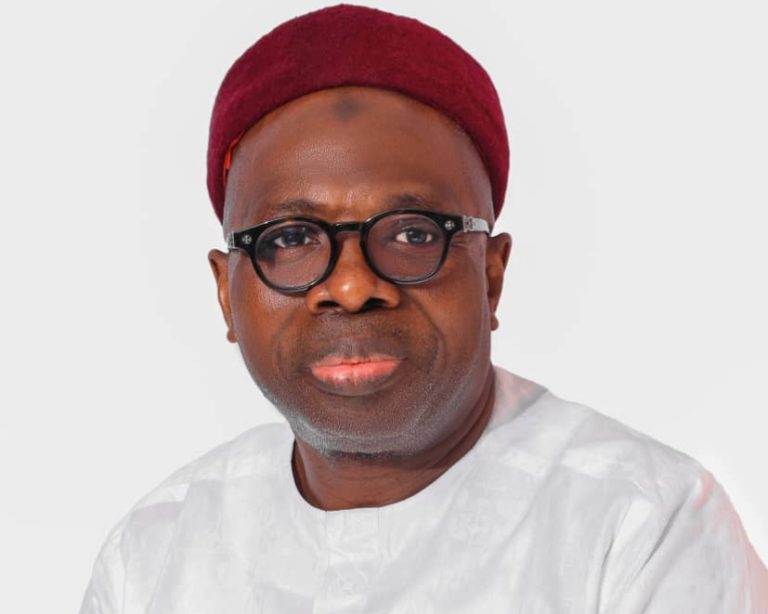A chieftain of the ruling All Progressives Congress (APC) Ambassador Nurain Mumuni has advised President Bola Tinubu to involve the African Union or United Nations in order to douse tension over the allegation of state-sponsored terrorism against Nigeria.
Mumuni made this declaration in a statement made available to journalists through his Media Aide, Rasheed Abubakar on Sunday.
Recall that Niger Republic’s Head of State, General Abdourahamane Tiani, has alleged that France is providing financial support to Nigerian authorities to establish a military base in Borno State.
But, Mumuni in his reaction, said that accusations of state-sponsored terrorism or similar serious allegations can be resolved through a variety of diplomatic, political and military measures.
The APC chieftain while speaking, said that the involvement of neutral third parties, such as international organizations like United Nations and African Union or trusted nations, can facilitate dialogue and help mediate the dispute between the two countries.
The security expert said that allegations of state-sponsored terrorism can lead to heightened tensions, instability and undermining regional peace initiatives.
He added that similar accusations in the past have had significant ramifications for regional security, reflecting the complex interplay between politics and security in volatile areas.
He suggested that there is a need to conduct an independent investigations into the allegation.
“Direct negotiations between the involved parties can help clarify misunderstandings and reduce tensions. Diplomatic channels may involve bilateral talks, mediators, or involvement from regional organizations. Involving neutral third parties, such as international organizations (e.g., the United Nations or African Union) or trusted nations, can facilitate dialogue and help mediate disputes.
“Parties often issue public statements to refute accusations and clarify their positions. This can include diplomatic notes, press releases, or speeches aimed at restoring credibility and public trust. Implementing confidence-building measures, such as joint military exercises or intelligence-sharing agreements, can help rebuild trust and demonstrate commitment to addressing security concerns collaboratively.
ALSO READ: 2024 budget: Jigawa govt finances 18 out of 33 health capital projects
“Conducting independent investigations into allegations can serve to establish facts and clarify accountability. Findings can help validate or refute claims and guide further actions. In some cases, international bodies may impose sanctions on parties involved, which can pressure governments to engage in dialogue or change their behaviours.
“Establishing or revitalizing regional security frameworks or agreements can facilitate broader discussions on security issues, allowing multiple states to address grievances collectively. Offering security assurances or guarantees can be a strategy to alleviate fears of future aggression and diminish tensions.
“Powerful nations can play a significant role in mediating conflicts and resolving accusations, using their influence to bring parties to negotiate and reach settlements. Communication. Engaging in effective public diplomacy to shape narratives and counter-propaganda can help mitigate misunderstandings and reduce animosities between states.
“Establishing rapid response mechanisms for conflict situations can help manage escalations more effectively, allowing for timely dialogue and conflict resolution. Ultimately, the resolution of such accusations often requires a multifaceted approach that balances diplomatic engagement, security cooperation, and addressing underlying grievances to restore trust and stability in the region.
“Similar accusations in the past have often had significant ramifications for regional security, reflecting the complex interplay between politics and security in volatile areas. Here are a few examples of how such allegations have affected regional security: Accusations of one state sponsoring terrorism or undermining another often deteriorate trust between neighbouring countries, leading to a breakdown in cooperation on security matters. This was seen in the fallout between Sudan and South Sudan, wherein allegations of support for rebel groups escalated tensions and conflict.
“Countries may respond to accusations by increasing military presence along borders. For instance, following accusations of support for insurgencies, both Nigeria and Cameroon heightened their military mobilization to combat perceived threats, leading to confrontation and unplanned skirmishes.
“States might engage in proxy conflicts, supporting opposing factions in third countries to exert influence or retaliate. The situation in Libya, where various nations were accused of supporting different militias, illustrates how such dynamics can prolong violence and complicate resolutions.
“Allegations can trigger escalations of violence, as parties feel compelled to assert themselves. For example, the accusations during the Boko Haram insurgency led to increased military operations by the Nigerian government, significantly affecting civilian life and leading to a humanitarian crisis.
“Accusations can complicate humanitarian efforts, as aid organizations may find it difficult to operate in areas affected by conflict or where trust is eroded. In regions like the Sahel, such dynamics often hinder the effective delivery of aid.
“Nations may become hesitant to engage in multilateral security initiatives due to fears of being implicated in similar accusations. This was observed in the Lake Chad Basin, where countries were reluctant to collaborate on counter-terrorism efforts due to mutual suspicions.
“Escalated accusations can lead to international intervention, either in the form of peacekeeping missions or military aid to one side, which can further complicate the security landscape as seen in cases like the Democratic Republic of Congo.
“Accusations and subsequent military actions can create power vacuums and generate grievances among local populations, making them more susceptible to recruitment by extremist groups. Overall, historical patterns suggest that allegations of state-sponsored terrorism can lead to heightened tensions, instability, and violence, complicating security efforts and undermining regional peace initiatives”.
READ MORE FROM: NIGERIAN TRIBUNE
